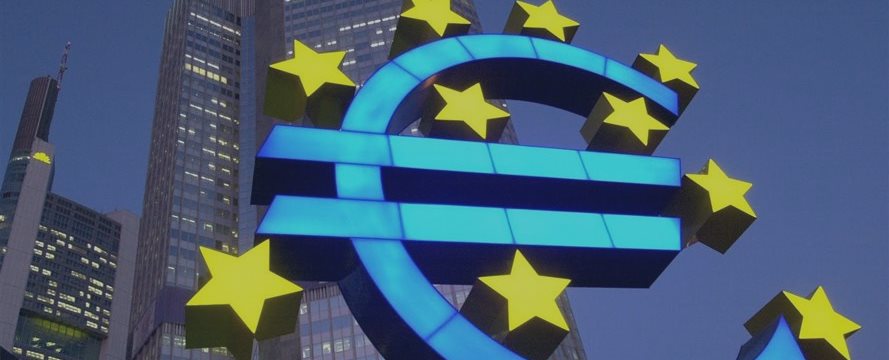
ECB lowers growth and inflation forecasts, signals QE will last till September 2016
On Thursday, following the central bank’s monetary policy meeting, where
interest rates were left unchanged, ECB President Mario Draghi
said the staff now projects gross domestic product (GDP) to increase
by 1.4% in 2015, down from June’s forecast of 1.5% growth.
GDP is expected to grow 1.7% in 2016, and 1.8% in 2017, down from June’s forecast of 1.9% and 2.0%, respectively.
“Overall, we expect the economic recovery to continue, albeit at a somewhat weaker pace than earlier expected, reflecting in particular the slowdown in emerging market economies, which is weighing on global growth and foreign demand for euro area exports,” Draghi said in his opening statement, adding that the risks to the euro area growth outlook remain on the downside, mirroring the increased uncertainty overseas.
The ECB also sees lower price pressures moving forward,
mostly resulting from weaker prices for energy. The latest ECB staff
projections now see the Harmonized Index of Consumer Prices at 0.1% in
2015, down from 0.3% in the previous forecast.
Inflation in 2016 is forecast to be 1.1% and 1.7% for 2017, down from June’s prediction of 1.5% and 1.6%, respectively.
During the question-and-answer period of his press conference, Draghi said that there is a risk the euro zone will see negative inflation; however, he added that the committee doesn’t see the risk of deflation.
“In this context, the Governing Council will closely monitor the risks to the outlook for price developments over the medium term. We will focus in particular on the pass-through of our monetary policy measures, as well as on global economic, financial, commodity price and exchange rate developments,” he said in his opening statement and reiterated during the question-and-answer portion.
Along with the softer economic outlook, the head repeated that the bank is committed to its monthly bond-purchase program until at least September 2016.
Draghi also paid attention to the recent increase in financial market volatility, saying “the Governing Council judged it premature to conclude on whether these developments could have a lasting impact on the outlook for prices and on the achievement of a sustainable path of inflation towards our medium-term aim, or whether they should be considered to be mainly transitory.”


